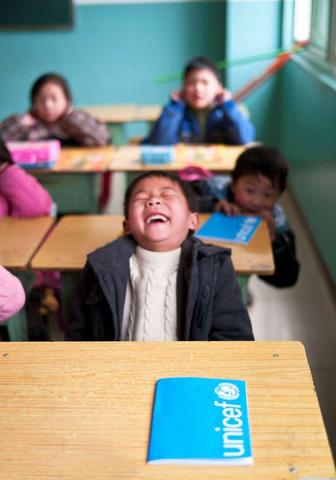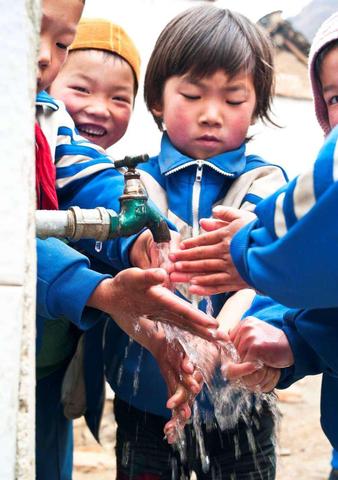Sichuan earthquake 3 years on – rebirth, rebuild and renewed hope UNICEF accelerated social policy reforms
2011-05-12
BEIJING/ HONG KONG, 12 May 2011 – 3 years ago, the massive 8.0-magnitude Wenchuan earthquake struck China’s south-western Sichuan Province, leaving the area and nearby provinces in destruction. Through UNICEF’s concerted and tireless efforts together with the local government, the affected and local communities, rebirth, reconstruction and renewed hope have come to replace death, destruction and despair ought by the earthquake. Our lessons learnt in this emergency have accelerated the social policy reforms, which has led to enhanced preparedness, greater risk resistance capacity and a better rebuilt future for children and their families.
 |
In the past 3 years, UNICEF has in total provided nearly US$42 million (HK$327.6 million) worth of supplies, technical support and programmes to hundreds of thousands of families throughout the 3 phases of relief, recovery and reconstruction. As a result, lives have now resumed in the affected communities. Critically, the “Building back together” plan, a collaborated project of the government and UNICEF, hasintroduced many of the new concepts and programmes covering issues concerning children and women, which previously had not been fully addressed. More importantly, it has provided practical references for related local and national policy, leading to implications for the wellbeing of children and women on a higher level and at a wider spectrum throughout the country. |
- Supporting the Ministry of Civil Affairs in developing Working Procedures for Placement and Care of Separated Children in Emergencies and Five-Year Plan on Social Work in Disaster Reconstruction
- Supporting the Ministry of Education in issuing and implementing National Management Guideline on Safe School Construction and Management
- Contributing to the development of National Guidelines on Emergency Health Relief for Children, ensuring that nutrition considerations will be a central element of future emergency operations
- Supporting the Ministry of Health to issue General Standards for Complementary Food Supplements, giving the potential of a scaled-up response of the pilot micronutrient intervention across the country
-
Supporting the authorities in developing Basic Technical Guidelines on Water, Sanitation and Hygiene in Emergencies, as well as National guidelines on Emergency Health Relief for Children to educate the communities to improve the hygiene practice
| “UNICEF would like to recognise the courage of communities, the dedication of partners and the generosity of donors over the last three years. It is because of this courage, dedication and generosity that children, women and communities in the Sichuan earthquake zone and around China are today more resilient and better protected than they were three years ago,” said MsGillian Mellsop, UNICEF Representative to China. |  |










